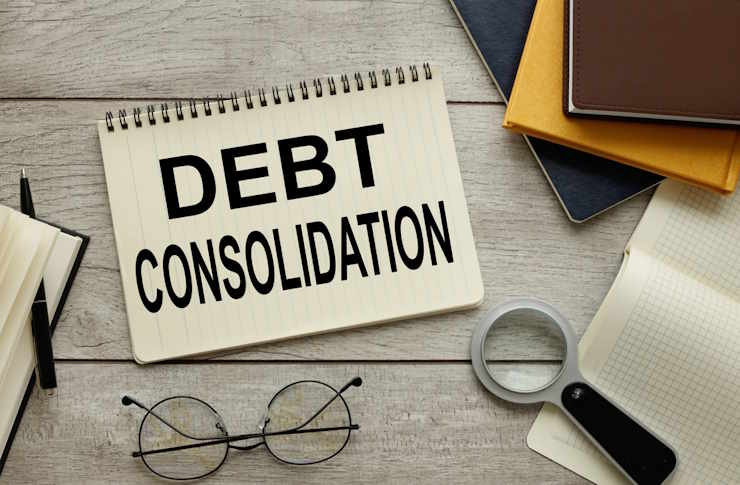Debt Consolidation in South Africa: Your Complete Guide to Simplifying Finances & Taking Control
Feeling overwhelmed by multiple debts? You're not alone. Many South Africans are seeking smarter ways to manage their finances. This guide explains everything you need to know about debt consolidation in South Africa, from understanding the basics to exploring your options and making the right choice for your financial future.

Mastering Debt Consolidation: A South African Guide
Debt consolidation has become a popular financial strategy for South Africans seeking to manage their debts more effectively. This approach involves combining multiple debts into a single loan, often with a lower interest rate or more favorable terms. As the economic landscape continues to evolve, understanding debt consolidation can be crucial for those looking to regain control of their finances.
Understanding Debt Consolidation in South Africa
Debt consolidation in South Africa works by taking out a new loan to pay off existing debts. This new loan typically comes with a lower interest rate or more manageable repayment terms. The process involves applying for a consolidation loan from a bank, credit provider, or debt counsellor. Once approved, the funds are used to settle outstanding debts, leaving the borrower with a single monthly payment to manage.
Types of Debt Eligible for Consolidation
In South Africa, various types of debt can be consolidated. These include credit card balances, personal loans, store accounts, and even some secured debts like vehicle finance. However, it’s important to note that not all debts are suitable for consolidation. Home loans, for instance, often have lower interest rates and longer terms, making them less ideal for consolidation.
Pros and Cons of Debt Consolidation
Debt consolidation offers several advantages, including simplified finances, potentially lower interest rates, and a clearer path to becoming debt-free. It can also improve credit scores over time as payments become more manageable. However, there are drawbacks to consider. Consolidation loans may come with fees, and if not managed properly, they can lead to a cycle of debt. It’s crucial to address the root causes of debt to prevent future financial struggles.
Eligibility Criteria for Debt Consolidation Loans
To qualify for a debt consolidation loan in South Africa, lenders typically look at several factors. These include a stable income, a good credit score, and a debt-to-income ratio that shows the ability to repay the new loan. Some lenders may require collateral, especially for larger loan amounts. It’s essential to shop around and compare offers from different providers to find the best terms and rates.
Alternatives to Debt Consolidation
While debt consolidation can be an effective solution, it’s not the only option available to South Africans struggling with debt. Debt counselling, also known as debt review, is a formal process where a registered debt counsellor negotiates with creditors on your behalf. Another alternative is debt settlement, where you negotiate directly with creditors to pay a lump sum that’s less than the full amount owed. For those with less severe debt issues, budgeting and lifestyle changes may be sufficient to regain financial control.
Navigating the Debt Consolidation Process
| Provider | Consolidation Loan Features | Estimated Interest Rate |
|---|---|---|
| African Bank | Loans up to R250,000, terms up to 72 months | From 15% p.a. |
| Capitec | Loans up to R500,000, flexible repayment terms | From 12.9% p.a. |
| Standard Bank | Debt consolidation up to R300,000 | From 13.5% p.a. |
| Nedbank | Personal loans for debt consolidation | From 14.5% p.a. |
Note: Interest rates are estimates and may vary based on individual credit profiles. It is encouraged to conduct independent research for the most up-to-date information.
When considering debt consolidation, it’s crucial to approach the process with caution and thorough research. Start by assessing your total debt and calculating potential savings from consolidation. Compare offers from multiple lenders, paying close attention to interest rates, fees, and loan terms. Be wary of predatory lenders who may offer seemingly attractive deals with hidden costs.
Debt consolidation can be a powerful tool for financial recovery, but it requires commitment and discipline. It’s not just about combining debts; it’s about changing financial habits to prevent future debt accumulation. Many South Africans find success by coupling debt consolidation with financial education and budgeting strategies.
Remember that while debt consolidation can provide relief, it’s not a magic solution. It’s essential to address the underlying causes of debt and develop healthier financial habits. With careful planning and responsible management, debt consolidation can be a stepping stone towards a more stable financial future for many South Africans.
The shared information of this article is up-to-date as of the publishing date. For more up-to-date information, please conduct own research.




